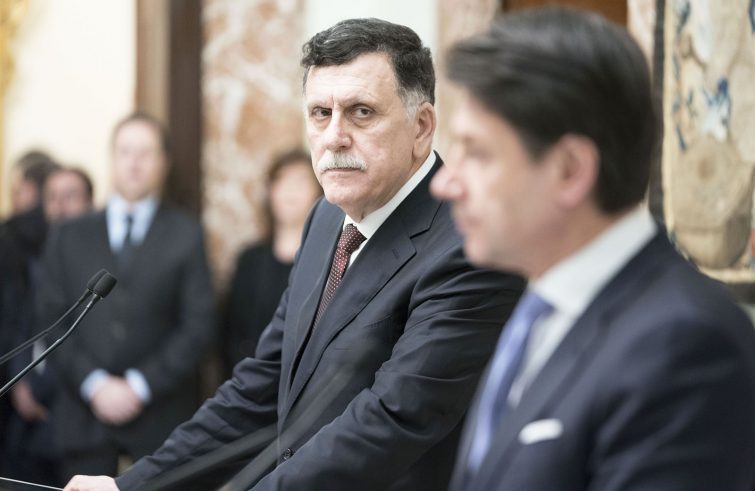
Arguably, this confirms that any negotiating proposal for a resolution to the conflict in Libya is hardly relevant without the will of a good number of States. This appears to be the crux of the latest scenario of a war that the principal Chancelleries are not alien to, all of them inclined to view the Libyan situation as a potential scheme to adjust the balance of power, perhaps to settle disputes dating back decades, or to see if, and how, it is possible to have a different approach to situations other than the military one. The simplest explanation involves the energy sector or human mobility and forced migrations, while the relationship between the different facets of Islam, the terrorist threat, and a more extensive balance in the Eastern Mediterranean, are issues of greater complexity.
All these situations are linked to a never-quenched desire for external control of a strategic arena that has always fascinated government leaders, intrigued analysts and scholars, attracting businesses and economic activities.
A new start could commence in Berlin or it may have already been set in motion in Moscow, thereby substantiating the claim that individual countries – and the European Union? – could be more than mere spectators of a long-lasting crisis that the present balance of power – internal and external alike – cannot resolve. Indeed, the challenge clearly extends beyond the clash of two macro-realities seeking to regain control of that territory. This analysis, albeit convenient, seemingly fails to take into account the micro divisions characterising the Libyan situation (from the Tuaregs in the southwest to the Tubu militiamen in the south). These images are certainly not new, but they probably make the difference. At the present moment it means preventing Cyrenaica from annexing Tripolitania, or ensuring that the latter continues to be officially recognized by the international community. Distinctions – or rather, perplexities – abound here too: the recognition so far has been not only political but of a quantitative nature, distant from an evaluation of political capacities and from the force of alliances whence a stabilization of the entire national territory was widely expected.
If it is not conceived in these terms, the anticipated conference risks becoming nothing more than a chance, perhaps the last. Likewise, a ceasefire should have the function of not undermining other possibilities, in addition to temporarily silencing the massive use of weapons. The indication of a definitive subdivision of the territory into two autonomous and distinct entities, or into an armoured peace through the presence of a military coalition that, even if under the UN umbrella, risks being, from the very outset, a host of interested forces that will eventually position themselves in their respective areas of influence, weighs on the failures of both initiatives. More than a solution, it would be the prelude to a status quo, static and precarious.
Thus, the external powers will play a crucial role in protecting their interests, including those transferred outside the Libyan territory. Or – according to a not-new scenario, in fact one which recurs in the unfolding of international relations – they will form the grounds for a “proper balance.” The motivation, that risks becoming the objective, being that Libya is ungovernable, or linked to the rhetoric whereby only the power exercised by Gaddafi could enable it to speak with one voice (a fact, when we look at the current disaggregation), or that it is necessary to safeguard the southern border of Europe with respect to migratory flows. Moreover, this approach overlooks the fact that Libya also represents the northern border of a complex reality such as the African continent. The Saharan and sub-Saharan region has become a crossroads of endemic instability, persistent underdevelopment, incurable poverty and, at the same time, an area of interest for European powers, those of the Gulf and of the East, including the Far East.
These latter factors and settings form a perplexing picture – so does the lack of information – that the population is excluded from, unless it is equated with the fighters on the battleground thereby supporting the claim that all Libyans are identifiable with the warring parties. It could probably be a way to exclude, and it would not be the first time, from the talks – and even from the negotiating table – the victims of the conflict, of the fragmentation, of the violence, perhaps unaware, of the interests on their territory.
Excluded without a cogent reason having at least been stated, and not confined to an expression of self-interest, power, National interest. These factors are not new to international relations, but it would be despicable if they were to become the inescapable outcome of the glimmer of hope that we are currently attempting to see for Libya in the subtle negotiating intentions, in the belligerent parties’ readiness to silence their weapons and in other signs that would seem to be leading to hope. That same hope that on 9 January last Pope Francis set as an objective and as a result of international action aiming to create a peace based on stability, international law, respect for the rules, coupled by an increasing awareness of the crucial importance of multilateral negotiations as compared to those determined by individual will, which remain an instrument of separation and opposition.
(*) Rector, Pontifical Lateran University












